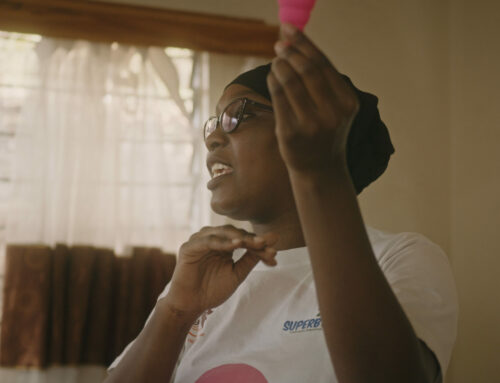The 28th of May is the International Day of Menstrual Hygiene. It is important for girls and women to get an overall better understanding of their own bodies and to see their periods as something natural while eliminating the taboos surrounding menstruation. Given that half of the world’s population has had, has, or will eventually have their period, it is very important to remember that despite it being a natural process, menstruation still remains a factor of gender inequality for many girls and women in different parts of the world. In countries where it is seen as a taboo subject, it generates a culture of shame where women are expelled, abandoned, or discriminated against because of it.
For most girls, getting their first period generates a whole range of emotions such as fear, doubt, shame, and uncertainty regarding what the future will hold for them.
Biologically, girls can have their first period at the age of 9 or 10, and in many cultures, this event becomes a sort of rite of passage that marks the end of childhood and signals the beginning of womanhood. Yet, what does it mean to become / or to be a woman in many parts of the world? Basically it means that girls are now expected to get married and to maintain sexual relations with their husbands, in order to bear children and become mothers. This is encouraged in order to prevent them from getting pregnant without being married, therefore preserving their family’s honor. As a result, many girls are forced into early marriages soon after they have had their first period.
From this moment on, keeping up with their studies becomes a struggle for most of them, as they cannot afford the hygienic products they need to be able to still go to school when they have their periods. Therefore, without a real understanding of the menstrual cycle or of menstrual hygiene; and without easy access to facilities equipped with proper sanitation, and the infrastructure and supplies necessary for girls to safely change and dispose of their menstrual materials, a high percentage of them end up dropping out of school.
Lacking available and adequate resources also increases the fear and the risk of girls staining their clothes and being singled out in public for having their periods. At first, most girls only miss class on the days that they menstruate – more or less between 4 and 5 days a month. However, this still causes them to postpone their school work, which lowers their overall performance. When that occurs, their parents or the family members with whom they live, begin to question whether it is worth paying for their education. Consequently, many abandon their studies as a result.
Menstruation should not mean the end of any girl’s education or be a sign that indicates that she is ready for marriage. We need to provide a safe and healthy environment in which menstruation is no longer seen as a danger, but rather as a natural part of a girls’ maturity. This requires providing the necessary education both at home and at school about the importance of menstrual hygiene, as well as providing the necessary hygienic products free of charge.
However, even for those girls and women who are able to afford the necessary sanitary products that help absorb menstrual blood, their period still has negative consequences because of the stigma associated with it that is fuelled by myths and taboos. Many women are isolated from society, from their homes, and from places of worship when they are menstruating, which has an unfavorable impact on their emotional development.
All over the world, there is so much secrecy surrounding menstruation. Often, it is never mentioned or euphemisms are used such as “it’s that time of the month” or the woman refers to herself as being “sick”. Not naming things by their name is counterproductive. It is important to talk openly about this natural biological process in order to eliminate stereotypes and prevent them from being seen as a curse or punishment that all women have to endure.
It is essential that we work together to put an end to menstrual poverty, and the best way to fight this is through education. By educating people and giving them access to quality information, we can eliminate stereotypes and build a more equitable society with equal opportunities for each and every one of us.




Leave A Comment